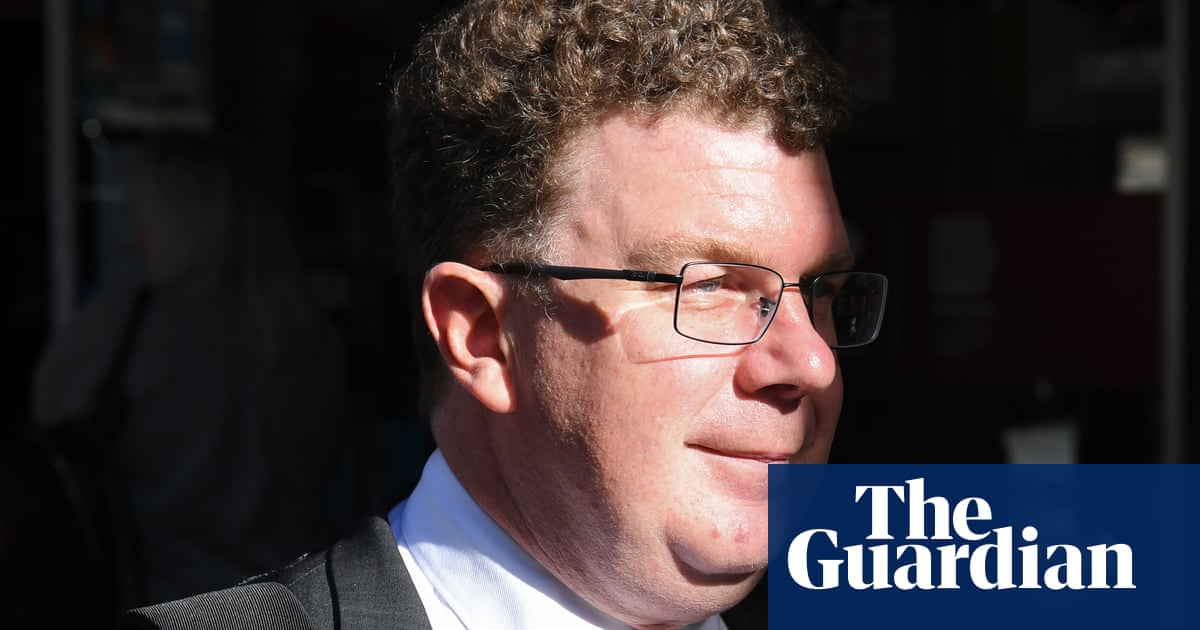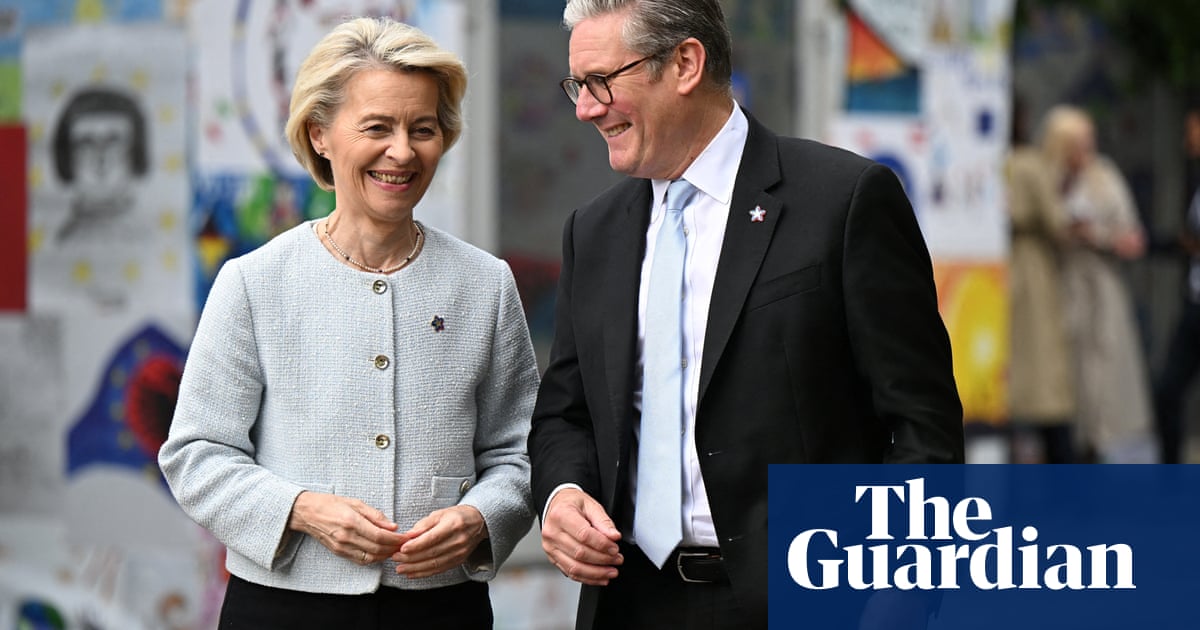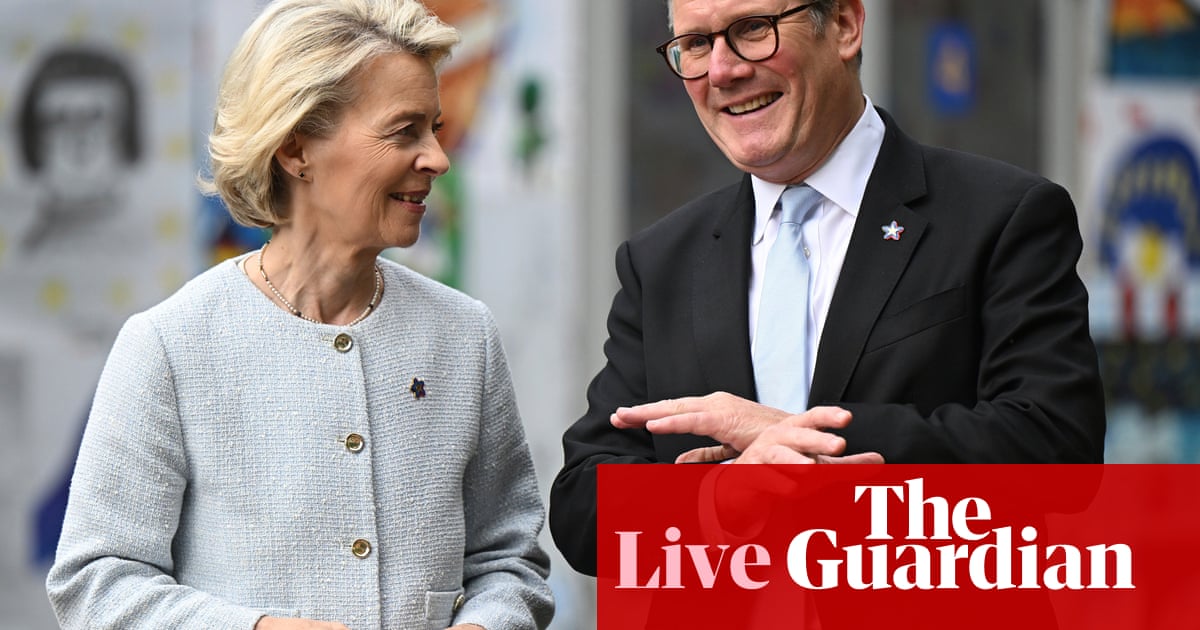Tony Blair’s thinktank has urged the UK to relax copyright laws in order to let artificial intelligence firms build new products, as it warned a tougher approach could strain the transatlantic relationship.
The Tony Blair Institute said enforcing firm copyright measures would strain ties with the US, which is poised to announce tariffs on UK goods on Wednesday.
Warning that geopolitical considerations require “urgent and adequate attention” while AI policy is being drafted, TBI said: “Without similar provisions in the United States, it would be hard for the UK government to enforce strict copyright laws without straining the transatlantic relationship it has so far sought to nurture.”
The thinktank has said that if the UK went down the route of demanding licensing of all UK content used in AI models, it would simply push that development work to other territories where there are less strict copyright laws. To enforce a strict licensing model, the UK would also need to restrict access to models that have been trained on such content, which could include US-owned AI systems.
In a report published on Wednesday, TBI said it backed government proposals to let AI firms train their models on copyright-protected material without permission, unless creatives have signalled they want to opt out of the process. With the Trump administration signalling it will not pursue strict AI regulations and China pursuing AI growth at “breakneck speed”, the UK could weaken its economic and national security interests by lagging in the AI race, said TBI.
“If the UK imposes laws that are too strict, it risks falling behind in the AI-driven economy and weakening its capacity to protect national security interests,” said TBI.
The report said arguing that commercial AI models cannot be trained on content from the open web was close to saying knowledge workers – a broad category of professionals ranging from lawyers to researchers – cannot profit from insights they get when reading the same content.
Rather than fighting to uphold outdated regulations, said TBI, rights holders and policymakers should help build a future where creativity is valued alongside AI innovation.
A more restrictive approach to copyright than the one taken by the EU, Singapore or Japan risked pushing AI developers out of the UK, said TBI.
Fernando Garibay, a record producer who has worked with artists including Lady Gaga and U2, said history has been dotted with “end-of-time claims” related to technological breakthroughs, from the printing press to music streaming. Those fears were unfounded, said Garibay in an introduction to the report, and the creative community should not “cling” to a legal status quo.
“The progressive solution is not about clinging to copyright laws designed for an earlier era but allowing them to co-evolve with technological change, to remain effective in fulfilling their regulatory and protective aims in the age of AI,” said Garibay.
The report, called Rebooting copyright: How the UK can be a global leader in the Arts and AI, also calls for the creation of a Centre for AI and Creative Industries that will encourage collaboration between the tech and creative sectors.
Beeban Kidron, a cross-bench peer and prominent campaigner against the government proposals, said the report was effectively telling artists to “put up or shut up” because AI’s advance is inevitable.
“It cannot be that the sum total of the government’s imagination is that the UK become an AI hub for Silicon Valley,” she said. “That has got to be the most depressing vision of the UK imaginable.”
Kidron added that TBI’s acceptance of donations from the US tech billionaire Larry Ellison, which reached $270m (£210m) last year, were “the very definition of conflict of interest”. According to documents filed in the US last year, Ellison’s foundation donated more than $52m (£40m) to TBI in 2024, with a further $218m (£169m) committed. TBI said the $270m commitment was for helping governments around the world, particularly in Africa, with “reform and change programmes”.
“We maintain intellectual independence over our policy work,” said TBI.

.png) 1 month ago
31
1 month ago
31

















































